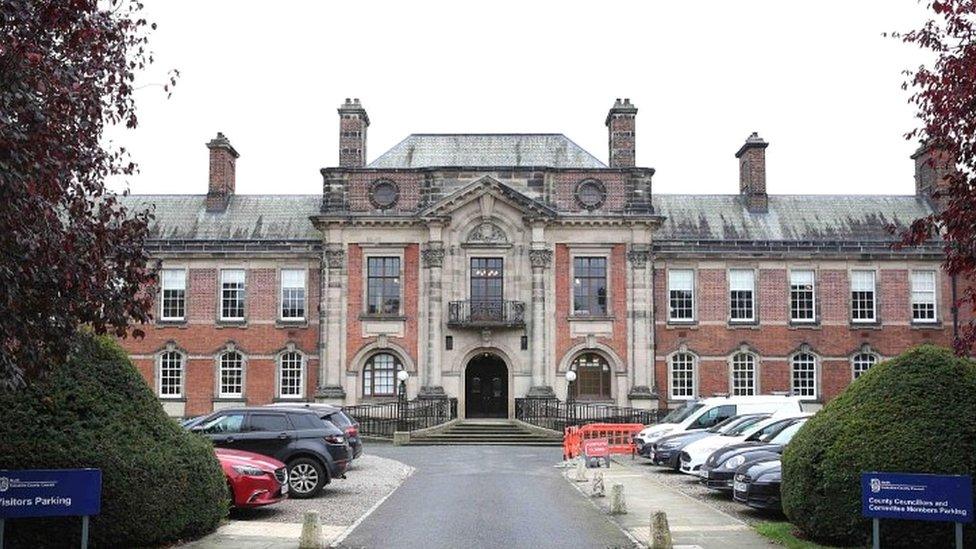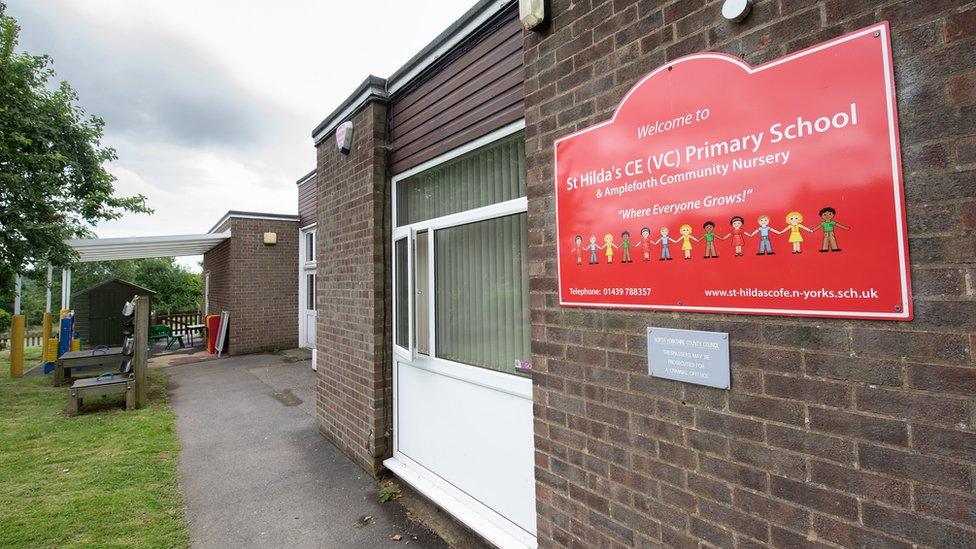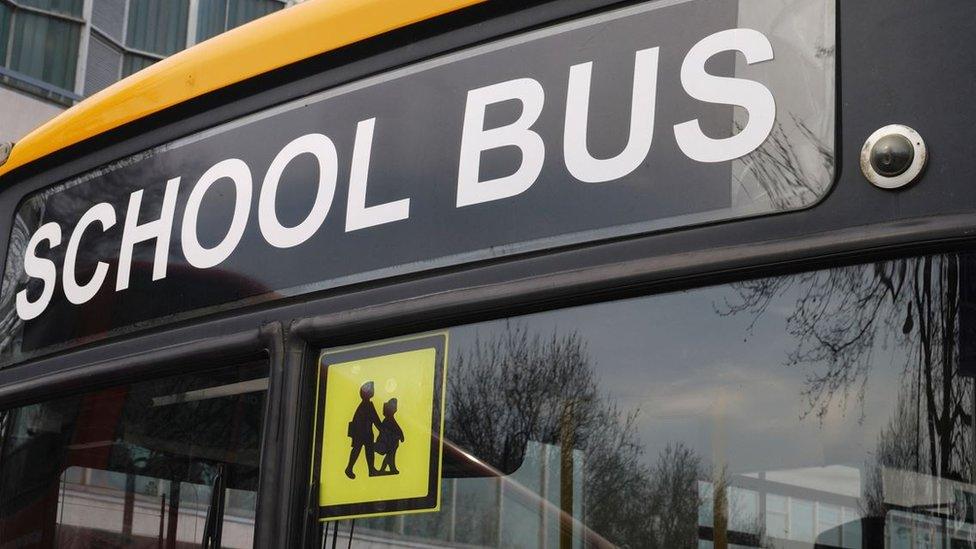North Yorkshire schools could soon face £11m collective deficit
- Published
- comments

A scrutiny committee meeting at North Yorkshire Council heard that providing education across a large rural county was costly
Schools across North Yorkshire have forecast they are likely to face a collective annual deficit of more than £11m in just over two years.
Councillors heard that by next month 36 schools were set to have an average deficit of £194,000.
This included 25 primaries, seven secondaries and four special schools, with a meeting hearing the situation had worsened in the last five years.
The Department for Education has been approached for comment.
Officers said the financial challenges were partly due to the high costs of providing education across a vast rural area not being being properly recognised by the government.
They said while schools' balances had dropped away, they had previously not reduced at the rate predicted by schools, as action had been taken to cut the day-to-day running costs of schools.
This was done by cutting the amount spent on teaching, support staff, energy bills, maintenance and teaching materials.
'Disadvantaged because of rurality'
The scrutiny committee meeting heard that while the 208 council-run schools had a combined surplus of some £13m last March and were projected to be still be in the black by some £10.1m next month, the schools had predicted seeing that surplus dwindle to £3m by next March and facing a collective £11.5m deficit by March 2026.
This was based on the assumption that North Yorkshire would remain among the lowest-funded local education authorities in the country.
Officers told the meeting that although the county did receive some "sparsity funding" to recognise the costs of providing education in small schools across a vast rural area, the national funding formula did not reflect the challenges facing some schools.
An officer added: "North Yorkshire has some of the smallest, most rural secondary schools in the country.
"It's a point we continue to make to the Department for Education, recognising that we are battling against a number of other interests in the country over what is a national funding formula."
The committee's chair and former teacher, Councillor Barbara Brodigan said it was clear government funding was "skewed towards areas of deprivation rather than disadvantage and North Yorkshire is disadvantaged because of its rurality".
Councillor David Jeffels said while the deficit figures were "concerning", 98% of those inspected by Ofsted so far this academic year remained or had become "good" or "outstanding".

Follow BBC Yorkshire on Facebook, external, X (formerly Twitter), external and Instagram, external. Send your story ideas to yorkslincs.news@bbc.co.uk, external.
Related topics
- Published21 February 2024

- Published23 January 2024
